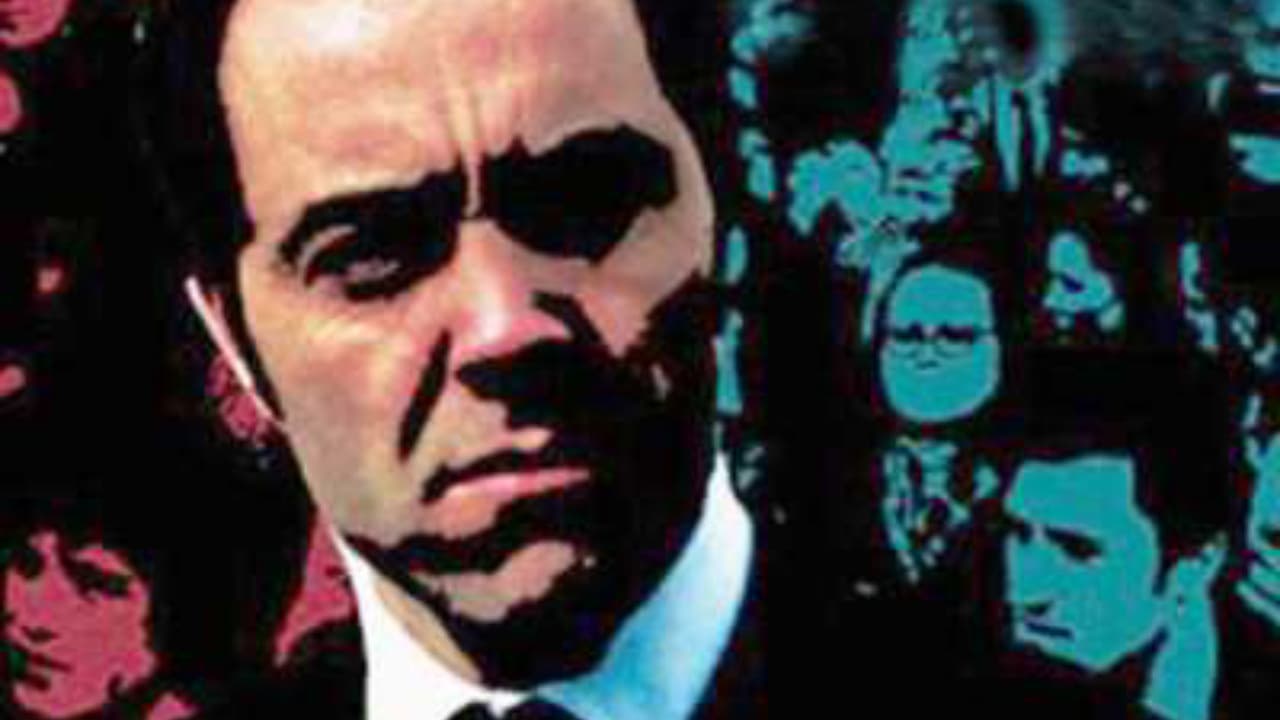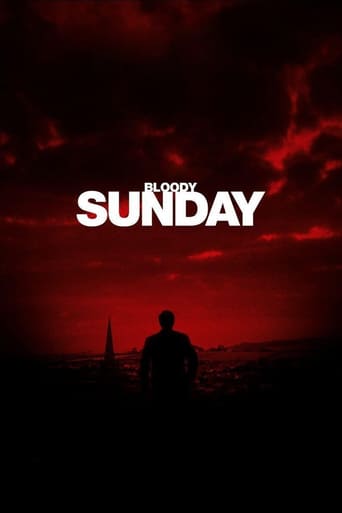

Reviewed December 2011I am an admirer of Paul Greengrass movies mainly for the editing and camera work which led me to watch this. An up close account of the tragic events that turned a peaceful Irish 1972 Civil rights march to a deadly massacre which ended with 13 civilians killed and twice injured kick-starting a political blame game. Ivan Cooper (James Nesbitt), the Member of Parliament for the Irish town of Derry leads the charge of a Civil rights march. The British government bans the protest making the march illegal and also involves the military to crush the situation. Like any other riot anywhere else in the world, one thing leads to another involving rowdy hooligans, trigger happy policing and groups with vested interests. The movie divides its focus on a close look from Ivan Cooper's stand point, the British Military view and a couple of families that were affected by this day. Keeping in mind that it would get offensive for the real victims if there is even a single point in the script that justifies the military action, the writers and the directer tread carefully and mostly plays safe. Paul Greengrass shows his early taste for editing and camera work, but his talent is not on best display here. James Nesbitt does a terrific job as the man edging on emotional crisis with the way the day has turned out, but has to maintain his saneness and composure to concentrate on the operational details. Sometimes gets a bit melodramatic and too emotional, but they must have been apt for the circumstance. Doesn't push it as hard as it could have and gets a little biased on the victims side. It has great moments placed in between mediocre ones. I wouldn't say it is a great movie, but does enough to use the emotional depth of this true story.
... View MorePowerful, provocative & prompting, Bloody Sunday is a meticulously researched, expertly crafted & thoroughly gripping recreation of the Bogside massacre that occurred in the Northern Ireland town of Derry when British troops opened fire on civilians during a protest march, killing 14 & wounding just as many in the process.Dramatising the events that led to the tragic incident on January 30, 1972, Bloody Sunday follows a civil right activist named Ivan Cooper who was the central organiser of the peaceful rally against internment that ended when British army paratroopers began firing on the unarmed demonstrators in full view of the public & the press.Written & directed by Paul Greengrass, the movie sets its foreboding tone right within the opening segment after which it takes a step back to put its pieces on the board but once the stage is set, it explodes & moves forward with stunning immediacy. Greengrass' direction is at its very best when things go south & the whole episode is extensively detailed in the script.Cinematography employs the quasi-documentary-style to film the entire event as it unfolds, thus bringing the viewers right into the conflict, while the frenetic hand-held camera-work further reflects the chaotic nature of such circumstances. Editing is slick for the most part, music is nearly absent and its cast contributes with convincing performances, playing their given roles with utmost sincerity.On an overall scale, Bloody Sunday is a fiercely directed, deftly scripted, viciously photographed, skilfully edited & brilliantly performed movie that brings the dreadful event to life with remarkable precision, brims with intense emotions from start to finish, and not only works as a riveting thriller but also as an unsettling documentary. Disturbing & disquieting but essential viewing nonetheless, Bloody Sunday is strongly recommended.
... View MoreThe partition of Ireland, though contested, is defensible; the subsequent neglect by the British government of the rights of northern Catholics is not. Nor is the shooting, on what has been termed "Bloody Sunday", of unarmed protesters objecting to the absence of these rights. Moreover, these events disastrously but understandably strengthened the roots that the I.R.A. was able to put down in the Catholic community. An initial enquiry vindicated the soldiers; but many felt this a whitewash, and Paul Greengrass's film shows an alternative version of events, based on extensive research. What we see, messily and unmelodramatically, is not a clean fight between good and evil - the demonstration was certainly hostile and not entirely peaceable - but a grotesque tragedy resulting from a self-fulfilling belief on the part of the army that they were already at war. The verdict might be incompetence rather than murder; but when the incompetence is itself premeditated, the difference is a fine one. To make a film effectively endorsing one of Irisah Republicanism's more potent claims was a brave move by I.T.V.; but a more recent enquiry has largely confirmed its accuracy.
... View MoreGreengrass brings his own brand of Cinema Verite to one of the UK's most notorious and shameful episodes in living memory. The iconic image of one brave soul waving a white hankie as he carries a wounded comrade is faithfully recreated, signaling the director's intent to give an interpretation, but an accurate interpretation, of the events that unfolded that day.The film's documentary-style works, just as it does in United 93. That film famously cast unknowns so as not to detract from the power of events. Here, Nesbitt's presence does at times seem jarring, but only in the early moments as he goes on to give an outstanding performance as the convivial Ivan, overwhelmed by a massacre no one could have predicted. The panic of the crowd, the echo of the shots being fired, the incredulity of the reactions - all are believable, and powerfully so. Were the Paras as deliberate and calculating as the film makes out? Isn't there a chance this was a few low IQ numbskulls whose ill-discipline got out of hand? The portrayal of the UK military in particular marks this film out as polemical in its handling of the material. However, given the obfuscation and emotion swirling around Bloody Sunday, how could it be otherwise? Anyone interested in history who thinks they can get it from a film should not be allowed to handle sharp cutlery. However, as a start point to generating curiosity about this event, the film is well-executed. Hopefully, it can be used to begin the social education of future generations as The Troubles start to slip from living memory. Greengrass has made this niche of film-making his own, and on this outing, that niche is in good hands.
... View More